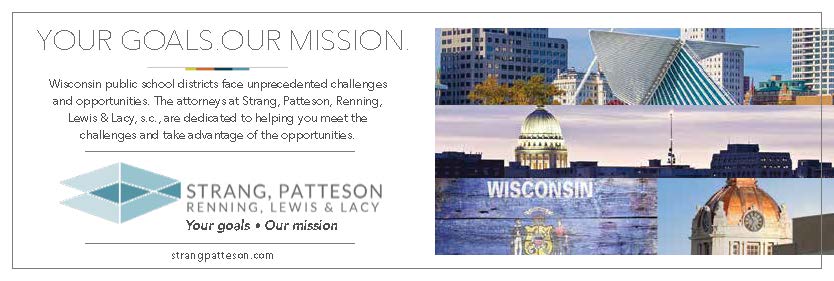October 9th Edition
October is National Principals Month:
What Do We Know About Attracting, Retaining and Growing Great Leaders
by Jim Lynch, Executive Director, Association of Wisconsin School Administrators (AWSA)
School principals influence the school culture and the instructional quality of whole systems of teachers.[i] Leaders’ effect on students contributes to twenty-five percent of the total school influences on students’ academic performance.[ii] Therefore, school districts have an enormous interest to attract, retain and continually improve strong school leaders.
Read more.
Should AWSA Hold a PK-12 Convention? A Case Study in Competing Goals
by Jim Lynch, Executive Director, Association of Wisconsin School Administrators (AWSA)
Prior to 2011, AWSA offered a PK-12 Annual Convention every October during “teacher convention” days. Until that time, a majority of school districts scheduled a two-day holiday so that teachers could attend WEAC’s annual Convention.
Read more.
October is National Principals Month
Successful schools depend on successful leadership. Principals serve as pillars of their school community often with no expectation for recognition or praise. Thank you for your dedicated service to your students and community. Your commitment to school excellence is what helps our teachers and students thrive.
For more ideas on how to celebrate the National Principals Month website includes ideas and tools for celebrating school leaders.
October 23th Edition
12 Things School Leaders Should Stop Doing Today
by Jimmy Casas
A couple of weeks ago I was part of a group discussion where a building principal shared that he had been called to the superintendent’s office. You could tell by the tone in his voice that he was a bit nervous about why his superintendent had requested the meeting. He shared that it wasn’t the first time he had been called in to have “a talk.” This got me to thinking how often we behave in similar ways (both intentionally and unintentionally) as building and district leaders when it comes to managing conversations and our decisions, and the negative impact this can have on the overall culture of any organization.
Read more.
High-Leverage Practices in Special Education as a Foundation for Improving Student Outcomes
by Daniel Parker, Assistant Director of Special Education, Wisconsin DPI
In 2014 the Council of Exceptional Children (CEC) with support from the CEEDAR Center, began work on developing High-Leverage Practices in Special Education. In 2016, twenty-two high-leverage practices were finalized and are now being widely utilized by higher education and others to ensure each and every special education teacher has a foundational understanding of practices relating to assessment, IEP development, and provision of special education services. The CEC selected practices common to special education that occur with high frequency, are research-based, broadly applicable, and most importantly can be clearly articulated and taught to any educator.
Read more.
How Much Performance Culture Exists In Your School?
by Joe Schroeder, Ph.D. Associate Executive Director, AWSA
Perhaps the first and most important job of leadership is to cultivate the sort of organizational culture that will grow and sustain strong instruction so that student learning and well-being thrive. At first blush, people naturally identify trust and sense of community as critical components of a strong culture. But there is much more “under the hood” than that. For years, we have asked school and district teams in our SAIL Academy to assess themselves via a tool called the Performance Culture Index. Read on to see the instrument, how it is used, and what we have been learning to date.
Read more.

Resources for Planning or Improving Virtual Days
More districts are planning or implementing virtual days to provide instruction during inclimate weather, widespread illness or professional development. The DPI has developed a great resource entitled Virtual Learning Time for Public Schools to support implementation and improvement planning.
|